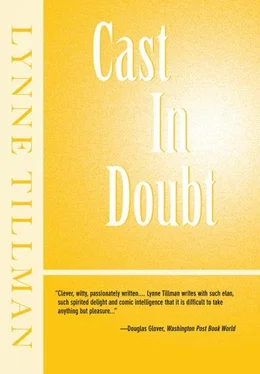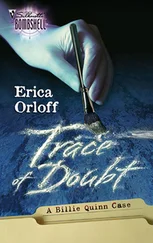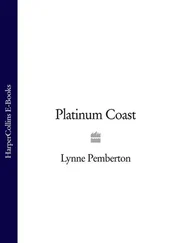I arrive home in the early evening. The return trip seemed to have taken no time at all.
Inside my apartment, at last in the secure confines of my rooms — I note Yannis has not tidied up since I left — I can breathe again and relax, somewhat. The door locked and secured behind me, I walk in shadow to the windows to draw the curtains. No one must know I have returned. Upon entering the hotel I instructed Nectaria not to tell anyone I’d come back. Except for Gwen and Yannis. Nectaria will bring a meal to my room. Dear Nectaria.
Only after the curtains are closed do I switch on a light. I settle into my favorite chair near the window and hear once more the music of the harbor. Yet nothing alleviates my anxiety. Helen’s diary — the stolen treasure — awaits my perusal. It is a prize and will be my reward, I tell myself, though reward for precisely what I have not yet ascertained. For the journey, for my labors, for my concern, for my relentless curiosity? All the way home, I was able to refrain from pulling over to the side of the road to read her diary then and there; this was accomplished by admonishing myself that I ought to be in the right place to do so, that all must be right — the setting and so forth. I do not like dark, dreary places for reading or eating. On this point I appreciate Sydney Smith: “Better to eat dry bread by the splendour of gas than to dine on wild beef with wax candles.” My objective was to dwell in a place of peace and quiet, I told myself, and then, and only then, would I — and would it be proper to — immerse myself in Helen and her diary.
With a stiff drink in hand, I study its covers carefully. There is silver glitter sprinkled and glued onto the back cover. On closer inspection I notice that the word “analyst” has been scratched upon. I swallow the Scotch then pour another shot — the tawny liquid toasts my innards. Then, for good measure, another, and only then do I dare open the book.
Gingerly I flip through its pages, from first to last, to get a sense of the whole. Some pages are nearly blank, with just a few words on them; some are covered with magazine pictures, a few words glued on or over the images. Other pages are filled with doodles and scribbles; most are writings, scrawled in an intense, vertical script. There are photographs and news clippings. The journal is in bits and pieces, cut up and pasted, like a collage. Like her room, I say to myself. At first glance Smitty’s diary — though I have nearly quit using that name — is a messy, disorderly affair; though, like her room, it may have its own rhythm and order. Helen is a very young woman — just a girl, really — and not a writer, after all. Thus I prepare myself.
I begin in earnest. Her diary starts at page two, for page one merely gives her name and address, in New York City, under which is emblazoned in gold ink, READ THIS AND DIE. I down another shot of Scotch. While these words are chilling, unnerving, they are also sophomoric, touching and comical, something common to adolescents. The diary is undated and may have been begun before she came to Crete, but I am not sure.
On the second page is a quote: “Take a walk on the wild side.” Beneath this is a picture of Jane Fonda. Helen has scrawled Klute next to it. The movie played here; I was intrigued by Fonda’s portrayal of a prostitute, who was shown in session with her psychiatrist. It was a frightening film — she was stalked by one of her clients. Fonda’s having visited Hanoi during the war in Vietnam was an outrage to Roger; one can barely mention her name to him. He will fulminate for hours. Opposite is a photograph of Helen and another girl, posing extravagantly; the two look about fifteen. The other girl is pursing her lips. They are both wearing black lipstick, I think. Next, two pages of line drawings that appear to me to be sexual organs.
I’m walking somewhere maybe a park on my way to something, a date with O., and I see a man, a father, with his child, a girl, and the father’s struggling to carry something that has to do with his work and his child’s welfare. So I help him by carrying one side of it — like a car hood or counter — I carry it on my shoulder and the child is in the middle between us and he and I do all the work. Then we have to run and I’m afraid I’m going to drop my side. Daddy REX.
I am reminded of OEDIPUS WRECKS, written on the piece of paper I found in her room.
Picked up J at CBGB’s — the Dolls — the usual/Told J he could follow me all night if he wanted and he did, all night, followed me everywhere, and he was there in the morning. And it was weird. Told him, lying the way I can, told him I was in a theater class and studying to he a great actress and I was trying to be someone else just for an experiment, to see if I could. Like the Method. I’m not really like this I said. He got really really FREAKED, it was funny and he tried to act like he knew what was happening. Just felt like it.
Was this “J” our John? If so, their relationship had a rocky beginning. Why would she want to experiment in that way? One cannot understand why he would have followed her here, if he did, based upon this piece of evidence. But one must never forget, or underestimate, how perverse we humans are. A quote from Rainer Maria Rilke follows, from the Duino Elegies, I believe.
But what are they doing here, these acrobats, a little more fugitive even than us? Who are they trying to please? What sadistic will compels them from earliest childhood to perform such violent contonions? Rilke
Helen has marked his name only, which, as I proceed through the diary, or scrapbook, is, I see, her usual mode, though occasionally she does state the source. I am rather surprised by her liking Rilke; but I remember that when I was young he appealed to me, too. I haven’t read him in ages.
Headlines or captions dot almost every other page; I suppose this kind of thing is popular in her group. For instance, on the page just mentioned, at its top, is inscribed “Perpetual Out-patient.”
I’m going to blow up and explode and die a thousand times. Every day. Silting on a nuclear bomb. What’s the point, everything is so stupid such bullshit it makes me sick.
There follows, after this outburst, a series of phrases:
Courage between legs
Spaced out
Walking the dog
live evil
Kill for Peace
outsider insider
fuck the sixties
fuck prohibitions
These are not written in her hand but appear to have been clipped from newspapers or magazines. They are accompanied by matchbook covers that have also been cut up. The phrases may represent and be typical of graffiti; Gwen has mentioned in passing its popularity. A headline similar to anyone of these phrases sits at the top of pages dense with Helen’s intense, vertical script and functions. I believe, as a title for a dream or story, though it is often difficult to distinguish one from the other.
Looked more second avenue than any 20 year old should, skin on ankles actually drying up ALREADY so I bought socks and later I told him and he said he would have given me a pair, they would’ve been too big anyway. His arms, no arms could keep me warm enough, couldn’t hold me long hard tight enough.
This is titled: “Trouble is Love.” I wonder if the “he” was John or another. Like most teenagers, Helen is concerned with love.
There are several lists scattered over the pages — things to do, buy, chores — and these are interrupted by quotes and headlines of the type already noted. I turn the page and find a lurid paperback cover, for a novel by — of all people — Colette. It depicts a scantily clad young woman with a long-haired black cat at her feet. She, the coquette, wears hot-pink stiletto heels. “Colette’s Claudine . Shocking and Delightful. Part woman, part child. Ruthless and sensual as a young cat.” It is an Avon Book, and at the time it was published — I would guess the late fifties — cost only thirty-five cents. I can well remember when paperbacks cost that little. Those times are gone.
Читать дальше












